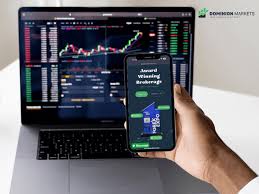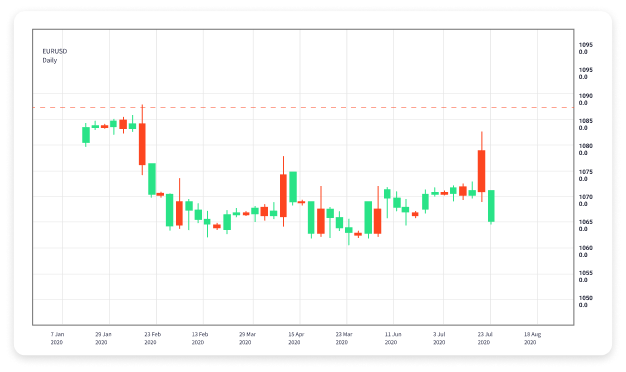
Unlocking Forex Trading: Choosing the Right Online Broker
The world of forex trading is an intricate and exciting space, filled with opportunities for traders willing to learn and adapt. A crucial first step in becoming a successful forex trader is finding the right forex trading online broker India Brokers online broker. This decision can significantly impact your trading experience, and it’s essential to understand various factors that will influence your choice. In this article, we will delve deep into the essentialities of forex trading, the role of brokers, and tips on how to select the best one for your needs.
Understanding Forex Trading
Forex trading, also known as foreign exchange trading, involves buying and selling currencies on the foreign exchange market. Unlike stocks, forex trading is decentralized and takes place over the counter (OTC), meaning there is no physical exchange. Instead, transactions occur through networks of banks, brokers, and financial institutions.
The forex market operates 24 hours a day during weekdays, providing ample opportunities for traders across the globe. The primary objective is to profit from fluctuations in currency prices. Understanding macroeconomic indicators, market sentiment, and geopolitical developments is key to anticipating currency movements and making informed trading decisions.
The Role of Online Brokers in Forex Trading
Online brokers play a vital role in enabling individual traders to access the forex market. They act as intermediaries between retail traders and the currency market, providing trading platforms, tools, and resources needed to execute trades successfully. Here’s how they contribute:
- Access to Markets: Brokers allow traders to access various currency pairs and the global forex market.
- Trading Platforms: They provide user-friendly trading platforms with advanced charting tools, technical indicators, and analytical resources.
- Leverage: Most brokers offer leverage, allowing traders to control larger positions with a smaller amount of capital.
- Customer Support: Good brokers provide customer support to assist traders with technical issues or questions related to their trading accounts.
- Education and Resources: Many brokers offer educational materials, webinars, and demo accounts to help traders develop their skills.
Choosing the Right Online Broker
Selecting an online broker is a critical decision that requires careful consideration of various factors. Here’s a comprehensive guide to help you choose the right broker for your forex trading journey:

1. Regulation and Trustworthiness
Ensure that the broker is regulated by a reputable financial authority, such as the Financial Conduct Authority (FCA) in the UK, the Commodity Futures Trading Commission (CFTC) in the US, or the Australian Securities and Investments Commission (ASIC). A regulated broker adheres to industry standards and safeguards your funds.
2. Trading Costs
Understand the trading costs associated with using a broker. These costs include spreads, commissions, and any withdrawal or deposit fees. A transparent pricing structure is crucial to help you assess your potential profitability.
3. Trading Platforms and Tools
The trading platform is where you will execute trades and analyze the market. Look for a broker offering a platform that is stable, user-friendly, and equipped with features such as advanced charting tools and technical analysis resources. Some popular platforms include MetaTrader 4 (MT4), MetaTrader 5 (MT5), and cTrader.
4. Available Currency Pairs
Ensure that the broker provides access to a wide range of currency pairs. While major pairs like EUR/USD and GBP/USD are essential for most traders, having access to minor and exotic pairs can provide additional trading opportunities.
5. Leverage Options

Leverage allows you to control larger positions with a smaller amount of capital. Different brokers offer varying levels of leverage. While higher leverage can amplify profits, it also increases the risk of significant losses. Choose a level of leverage that aligns with your risk tolerance and trading strategy.
6. Customer Support
Reliable customer support is critical, especially for new traders. Make sure the broker offers multiple communication channels, such as live chat, email, and phone support. The availability of multilingual support can be an added advantage for global traders.
7. Educational Resources
Look for brokers that provide educational resources to help enhance your trading knowledge and skills. This can include webinars, courses, articles, and access to a demo account for practice without any financial risk.
Strategies for Successful Forex Trading
Once you have chosen a broker, developing effective trading strategies will further increase your chances of success in the forex market. Here are some prevalent forex trading strategies:
- Scalping: A short-term strategy that involves making numerous small trades throughout the day, aiming to profit from minor price movements.
- Day Trading: Involves entering and exiting trades within the same trading day to capitalize on intraday market fluctuations.
- Swing Trading: A medium-term strategy focused on capturing price swings, usually holding positions for several days to weeks.
- Position Trading: A long-term strategy where traders hold positions for an extended period, typically based on fundamental analysis.
- Trend Following: This approach involves analyzing market trends and making trades in the direction of the trend.
In Conclusion
Forex trading can be a rewarding venture when approached with the right broker and a solid understanding of market dynamics. The selection process for an online broker should be conducted with thorough research and consideration of various factors. With the right resources and trading strategies in place, traders can navigate the forex market’s volatility and position themselves for success.
Remember, patience and discipline are key traits for any successful trader. Continue learning, practicing, and refining your strategies, and you’ll find your place in the exciting world of forex trading.
